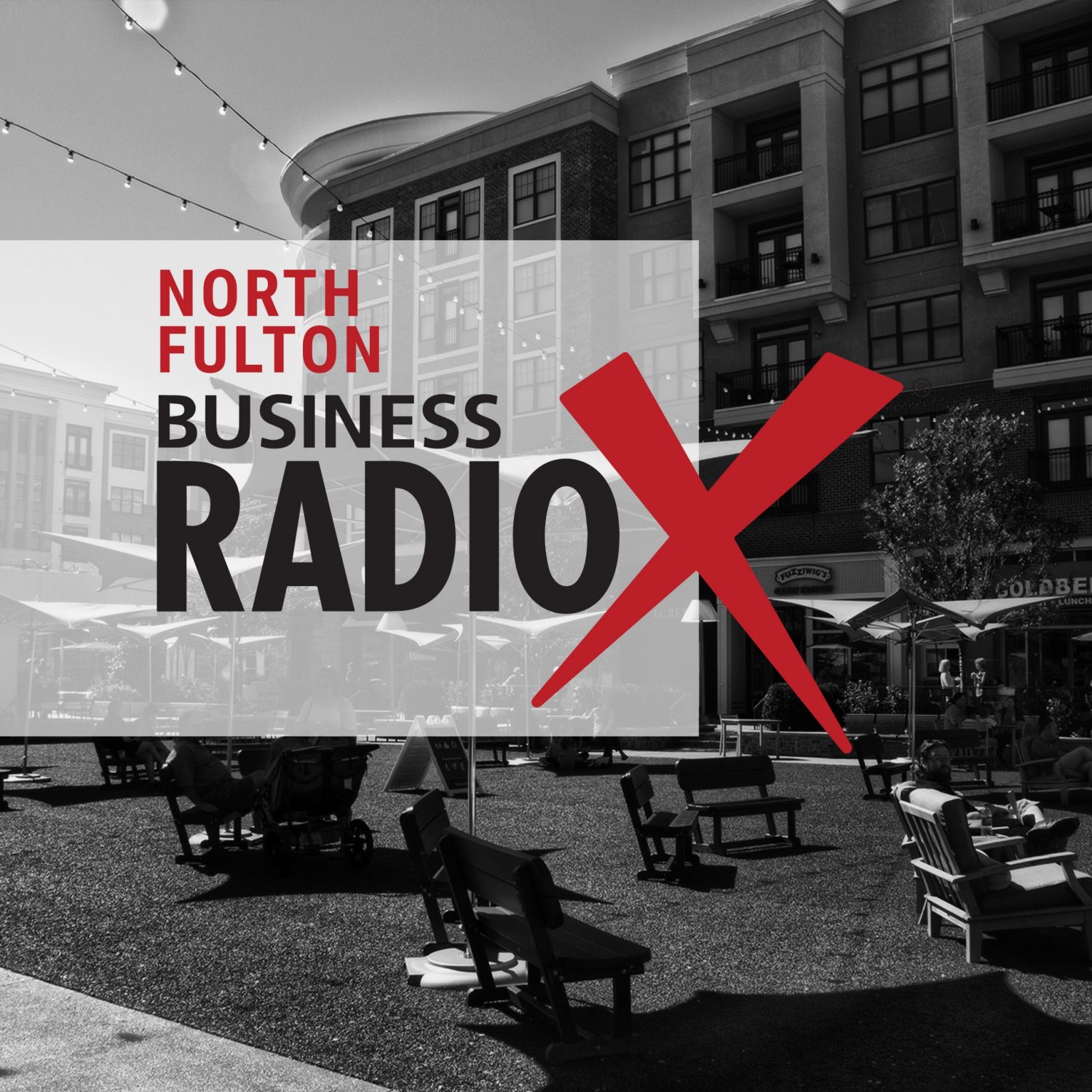
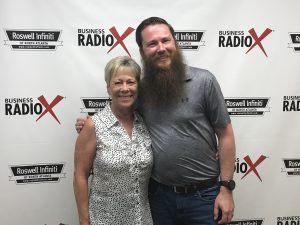
“North Fulton Business Radio,” Episode 144: Garrett Massey, Polyglot Labs
Garrett Massey describes the custom websites and web applications his company, Polyglot Labs, designs for clients as he speaks with host John Ray on this edition of “North Fulton Business Radio.”
Garrett Massey, Founder and President, Polyglot Labs
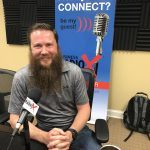
Polyglot Labs is a technology solutions company that works with speed and creativity to solve business challenges with technology smarts and likable personality. They do that through two specialized companies they call labs – Eyesore and Cortex Digital.
Eyesore builds awesome websites and digital marketing that make companies look good and drive business. Find Eyesore at eyesoreinc.com.
Cortex Digital innovates elegant, web-based solutions for back-end processes, databases, and systems that improve technology investments and business results. Find Cortex Digital at cortexdigitalinc.com.
Learn more about how their custom digital solutions can help you simplify processes, solve problems, and make your work and life better at www.polyglotlabs.com.
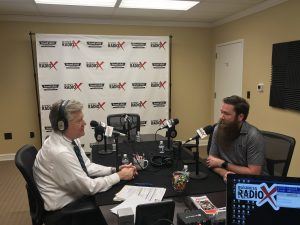
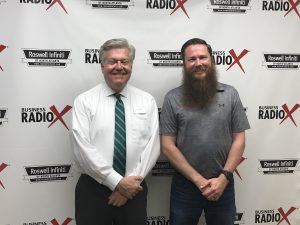
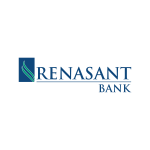 “North Fulton Business Radio” is broadcast from the North Fulton studio of Business RadioX®, located inside Renasant Bank in Alpharetta. Renasant Bank has humble roots, starting in 1904 as a $100,000 bank in a Lee County, Mississippi, bakery. Since then, Renasant has grown to become one of the Southeast’s strongest financial institutions with approximately $12.9 billion in assets and more than 190 banking, lending, wealth management and financial services offices in Mississippi, Alabama, Tennessee, Georgia and Florida. All of Renasant’s success stems from each of their banker’s commitment to investing in their communities as a way of better understanding the people they serve. At Renasant Bank, they understand you because they work and live alongside you every day.
“North Fulton Business Radio” is broadcast from the North Fulton studio of Business RadioX®, located inside Renasant Bank in Alpharetta. Renasant Bank has humble roots, starting in 1904 as a $100,000 bank in a Lee County, Mississippi, bakery. Since then, Renasant has grown to become one of the Southeast’s strongest financial institutions with approximately $12.9 billion in assets and more than 190 banking, lending, wealth management and financial services offices in Mississippi, Alabama, Tennessee, Georgia and Florida. All of Renasant’s success stems from each of their banker’s commitment to investing in their communities as a way of better understanding the people they serve. At Renasant Bank, they understand you because they work and live alongside you every day.
Show Transcript
Intro: [00:00:07] Live from the Business RadioX Studio inside Renasant Bank, the bank that specializes in understanding you, it’s time for North Fulton Business Radio.
John Ray: [00:00:20] And hello again everyone. Welcome to another edition of North Fulton Business Radio. I’m John Ray, and we are coming to you from the Business RadioX Studio inside Renasant Bank. We love Renasant Bank and the great hosts they are for our studio location here in beautiful Alpharetta.
John Ray: [00:00:40] I want to welcome — we’ve got a great guest, and he’s a fun guest. He really is a fun guest, but I’m going to let him convince you of that, folks. Garrett Massey with Polyglot Labs. Garrett, it’s great to have you here.
Garrett Massey: [00:00:55] Thank you, sir.
John Ray: [00:00:56] So, you win the award. The Business RadioX Award that have just come up with for the most creative names for a company, right?
Garrett Massey: [00:01:05] Thank you.
John Ray: [00:01:05] You’ve got three different creative names for the different enterprises you’re involved with. Tell us about Polyglot Labs and what you do.
Garrett Massey: [00:01:14] Yeah, definitely, definitely. Well, Polyglot Labs is a technology solutions company that’s comprised of currently a couple of different labs, one called Eyesore and one called Cortex. Eyesore is a website design and development company that works with small and large businesses, as well as digital marketing agencies as a white-label partner to design and develop really good-looking websites. Cortex is an application development company that creates both web and mobile apps focused on solving some type of workflow, business process, issue, streamlining things, and making the end clients, as well as the business more money.
John Ray: [00:02:04] Cool. So, for those that already know you, this is a little bit of a change.
Garrett Massey: [00:02:09] It’s true.
John Ray: [00:02:09] So, you were originally Eyesore, and you’ve just changed the name of, let’s call it the mother company, to Polyglot Labs. And then, you’ve got two different business lines, and you’ve clearly defined those with these two names – Eyesore and Cortex Digital.
Garrett Massey: [00:02:26] Sure, sure.
John Ray: [00:02:27] I got all that right.
Garrett Massey: [00:02:28] You did.
John Ray: [00:02:29] Good.
Garrett Massey: [00:02:29] You did, you did. Yes.
John Ray: [00:02:30] Okay, cool.
Garrett Massey: [00:02:30] Our brand release was actually last Friday from Polyglot Labs. So, a few of our partners had heard the name prior to that point, but most of our clients and partners were not familiar with it. So, it gave us an opportunity to kind of branch out. We’re still doing the same types of work that we’ve done, but it gives us the ability to kind of focus our marketing efforts and really how we engage with our clients in kind of a more individual way.
John Ray: [00:03:00] Sure. So, I find it interesting that you call these two entities labs. Explain why.
Garrett Massey: [00:03:09] Yeah, definitely. So, we chose to use the terminology “labs” internally because we really liked the feel of an experimental approach. We do not come to the table with a solution that’s in our back pocket. We do not come to the table with a product off the shelf. We do come to the table with — it’s a process that we can use to hone in on what the best solution is for any particular client. What that’s done for us and for our clients is, really, it helps us hone in on what exactly they need, our client’s needs, and gives us the ability to do work that’s a little bit different every time. Kind of keeps our creative folks really engaged in the process because we’re not doing the same thing day in and day out. There’s always a little bit of a challenge there.
John Ray: [00:04:01] And you’re not, I guess, pushing product as it were, right, the term, but you’re not focused in on what your sacred elephants are-
Garrett Massey: [00:04:11] Sure.
John Ray: [00:04:12] … or sacred cows, or whatever animal that is. You’re really about looking at clients from what their needs are and what the problems they need solutions for as opposed to whatever you’ve got on the shelf now.
Garrett Massey: [00:04:29] Yeah, exactly, exactly. One of my favorite examples of that, I get probably two or three phone calls a week, this is anywhere from small business to large business, wanting an app. Everybody wants an app. And the first thing I do is try to talk them out of it because that is a profitable line of business for us, it’s shiny object for a lot of people, but it’s not a good fit for most scenarios. So, kind of taking that off the table, take a step back, and evaluating what folks really need gives us the ability to kind of help them nail down what will ultimately serve them the best.
John Ray: [00:05:09] And sometimes clients don’t know what they need, right?
Garrett Massey: [00:05:14] True.
John Ray: [00:05:14] So, you have to — that requires a little bit of a — it’s not that they are dumb or anything like that. It’s just that having that conversation and having that open inquiry as to, “Hey, we might not have everything on the shelf. So, let’s talk a little bit about what it is you’re trying to get to,” may help them clarify some things they really didn’t have a good handle on to begin with just because they hadn’t been asked the questions.
Garrett Massey: [00:05:40] Oh, yeah. Absolutely, absolutely. We believe in doing discovery up front is really, really key. We work with clients that have an amazing technical competency, and we were with folks that don’t. And they know a lot about their business, a lot about their problems, a lot about what they may think that they need from a technology solution, but we get to help them step through that process and why isn’t that being the best solution.
John Ray: [00:06:09] So, let’s talk a little bit, Garrett, about the Eyesore side of the business. So, Eyesore builds websites. That’s not like my teenager in the garage building with a website builder, right? It’s a little more complicated than that-
Garrett Massey: [00:06:29] It is.
John Ray: [00:06:29] … in terms of the kind of projects that you do.
Garrett Massey: [00:06:31] It is, it is. So, I started Eyesore two and a half years ago as a website design and development company, right. That’s kind of where we focused on. My background, at that point, had been in computer science. I’d just gotten out of college. So, I always had an interest in more complex projects. And we still do brochureware websites, buy page, about us, home page, contact us kind of deal because those do really serve an important purpose.
Garrett Massey: [00:07:00] We, also, develop more in-depth websites a lot of times for a lot of our marketing agency partners, other partners we serve as their technical team to help implement what their client ultimately needs. So, roughly, 60% to 70% of the work that we do on the Eyesore side of the world is in that white-label space where we’re partnering with a digital agency, a traditional marketing agency, video, event planning agencies to ultimately design and develop their clients’ projects. And that can look like a five-page website or that can look like a 12,000-page website that has a lot of custom functionality built in.
John Ray: [00:07:44] And for those that don’t know, that’s pretty common in the world of marketing agencies, digital agencies, that kind of thing to partner together. And so, you really come along as the highly technical side of a marketing agency that really don’t have any of those kind of folks typically, right?
Garrett Massey: [00:08:05] Sure, sure.
John Ray: [00:08:05] I mean, they’re more, I guess, right-brained kind of creative types, and they don’t have that technical expertise. You bring that to them.
Garrett Massey: [00:08:14] Definitely, definitely. The marketing agency, a lot of them, especially the Atlanta area, began to realize several years ago that it’s not in their client’s best interests, and it’s not in their best interest to keep everything in-house. So, the number of partnerships that we’ve seen, not only in just market agency hiring a developer to write a website or whatever, but video production, event production, AI, all the cool stuff that goes into a successful marketing campaign, they’re realizing, “Hey, we can partner somebody else, and we can kind of hone in and focus,” because there’s enough work for everybody to go around. And if they can partner with the best in the business to do each particular aspect of what they do, the end client ultimately gets a better product, a better experience, and it shows.
John Ray: [00:09:08] Folks, we’re speaking with Garrett Massey. And Garrett is the President and Founder of Polyglot Labs. Now, talk a little bit, if you would, about — I mean, it’s one thing for me to say you build a lot more sophisticated websites. It’s another thing to put that into something that our folks out there understand. Talk a little bit about maybe an example of some of the work you’ve done there.
Garrett Massey: [00:09:35] Yeah, absolutely, absolutely. On the Eyesore side, we’ve worked on many, many complex projects over the years on the website side of the world. One of my most memorable projects, one of the agencies that was employed by the US Military was hit up by the US Military to build a new website for the US 3rd Army, which is the army that is the combination of the Army, the Navy, the ,Marines the Air Force, all that stationed over in Afghanistan, Iran, Iraq, all the places that you really don’t want to be.
John Ray: [00:10:10] Oh wow.
Garrett Massey: [00:10:10] And they had a timeline of two weeks to build what turned out to be a 12,000-page website. So, we were able to successively not only design, and develop, and launch a website in that timeframe, we also had to learn an entirely new programming language and content management system to actually execute that project. So, it actually took two and a half weeks only because they held us up. It’s kind one of the more memorable projects on the website side of the world.
Garrett Massey: [00:10:46] On the application side of the world, gosh, we developed the application that the 2016 Democratic National Convention used to assign all of the hotel rooms to their delegates. So, it’s not just a matter of having 50 different delegation groups. It’s actually about a thousand. So, each stay, each lobbying group, the Kennedy family has a delegation. It’s kind of crazy. But prior to this solution that we developed being in place, they were actually planning all this using post-it notes. So, they’d have a big wall, and they would write down on the wall or on a post-it note the name of the delegation, how many attendees they had, and they would mark off the 5000 different hotels they had for that particular location for that year. And they would assign rooms based on post-it notes.
Garrett Massey: [00:11:43] So, we were actually able to come in and develop a web application that automated that entire process. It was so successful that they literally had to change the Democratic National Convention Committee’s passwords to get them out of it, so they could finalize the numbers. They had so much fun in their playing in different scenarios, figuring out, “Hey, put this group over here. That changes this and that.” So-
John Ray: [00:12:07] Wow.
Garrett Massey: [00:12:10] … kind of bringing it down to the small business side of the world, some of the applications we’ve developed really helped streamline processes in a little bit of a different way. One of my favorite examples, we have a relatively local client in the State of Georgia that is an in-home health care provider, and they have hundreds and hundreds of in-home health care providers that go out to people’s homes and assist assist their folks. They had a time clock system that would involve folks going to these people’s homes, picking up a landline, and calling in, and it would actually clock them in, and they’d call in again, and clock them out. Well, several years ago, this little a trend, not many people have landlines anymore.
Garrett Massey: [00:12:58] So, we developed a mobile app that the in-home health care providers were able to download on their phones, and go out, and actually clock in from the app, clock out from the app. We did a cool thing there. We planted a QR code in the folks’ homes, so you could scan it with the app, and it will clock you in. Well, QR codes can be copied, right. So, it wasn’t in the background, but it occurred, we actually grabbed their GPS coordinates at the same time that they scanned the QR code.
John Ray: [00:13:32] Oh boy.
Garrett Massey: [00:13:33] So, the first month it was running, we actually busted somebody checking in at McDonald’s, a few miles away from the patient’s home. So, that added a level of kind of validation-
John Ray: [00:13:48] Wow.
Garrett Massey: [00:13:48] … and type of feel to that. We also integrated in that particular application a series of text messages, a text messaging system setting. So, anytime there was an availability for a position, the folks in that particular area would receive text messages and all sorts of cool stuff.
John Ray: [00:14:05] So, for that client, you were solving a problem they didn’t know they had.
Garrett Massey: [00:14:10] Correct, correct. It was easier. It’s one point in time when the whole landline thing was relevant. They become less so, and they basically did not have the ability to clock in and clock out. And through developing this process, we kind of weeded out some folks that they didn’t necessarily knew that they had.
John Ray: [00:14:32] Yeah. Back to what we were saying earlier about bringing solutions to clients as opposed to the product off the shelf. The product off the shelf wouldn’t necessarily have solved that problem, right?
Garrett Massey: [00:14:43] No, it would not, it would not. And I mentioned earlier that we enjoy doing a discovery session on the front end of our projects. We get a good clean idea of what’s going on. We also like doing — and the word “agile” in my world, anyways, has been overused to death. It’s the idea of iteratively working on solving a problem in chunks of time called sprints, right. So, you’re kind of stepping through that process. We we enjoy taking elements from that process because we don’t want a client to be waiting 18 months for us to build something. We want to be able to put something out that has some value, that has some use, and then work with them to continue improving that because in 18 months, a lot can change in a business.
John Ray: [00:15:35] For sure.
Garrett Massey: [00:15:36] In three months, a lot can change in a business. So, the issues that may have been addressed at the very beginning of a project, a few months later may have changed or new ones may come to light.
John Ray: [00:15:50] We’re speaking with Garrett Massey. And Garret is the Founder and President of Polyglot Labs. So, I guess, the solutions, the applications that you develop come through the Cortex Digital side. I’m curious how that started because it’s interesting that if you’ve developed a pretty sophisticated business out of one that maybe for some companies is not so sophisticated, but you’ve developed a pretty high-end business in terms of the technology solutions you bring to the table.
Garrett Massey: [00:16:32] Sure, sure. There are a ton of folks out there that build websites. There are ton of folks out there that build websites really well.
John Ray: [00:16:39] And nothing against them by the way, right?
Garrett Massey: [00:16:41] Absolutely not, absolutely not. With my background, like I mentioned earlier, my undergrad is in Computer Science. So, when starting, I understood a lot of the theory that goes into what makes computer work, what makes good software work. And so, always had an interest in solving more complex problems. Very passionate about building excellent web presences that serve a need that we kind of meet a goal. But we had the opportunity early on to tackle some more in depth into the problems that our clients may have.
Garrett Massey: [00:17:16] And what it’s done for us on the Eyesore side is give us the ability to be a true technical partner to not only our agency partners but also our clients. We don’t have to give up because we ran into an issue that we can’t solve. We have a whole team of programmers. And that’s one of our kind of value-adds to our partners is we have an entire team of in-house developers. It’s not just one person. Solopreneurs in our space are great, but they run into the issue of being siloed away from everybody else. And, obviously, the internet kind of helps mitigate that. But at the end of the day, when you run into an issue, and you can lean over to someone sitting next to you and say, “Hey, what’s going on with this? Have you seen this before?” and work collaboratively to solve the issue, that gives an end client, really, a better product and a better experience because it’s all taken care of.
John Ray: [00:18:17] For sure, for sure. Now, I’m interested, and I’m sure our listeners are too because there’s always a search for talent, how do you get the programming talent you’re always looking for? Because there’s always a shortage of talent. So, how do you get the folks that you’re looking for? And here’s the real secret, how do you get them, if you’re headquartered in Griffin Georgia, because that’s where your headquarters is?
Garrett Massey: [00:18:46] Oh, yeah.
John Ray: [00:18:46] Right?
Garrett Massey: [00:18:47] Yeah.
John Ray: [00:18:47] So, I mean, you’ve got quite a few issues there. You have to address in building your business.
Garrett Massey: [00:18:53] Yeah. I remember the first time you and I met, you were shocked to learn that I had a problem-finding talent and programmers in Griffin, Georgia.
John Ray: [00:18:59] Right.
Garrett Massey: [00:18:59] Your mind was blown
John Ray: [00:19:01] My mind was blown. It still is.
Garrett Massey: [00:19:05] Griffin’s a really cool place but is not exactly Silicon Valley.
John Ray: [00:19:09] Right.
Garrett Massey: [00:19:10] And that actually has some unique benefits for us. So, to answer your first question on how we acquire talent, most of our folks, and we employed 15 or 16, folks something like that, most of our folks start out with us as interns, and they’re from the area or have an interest in living in the area. One of those recent fellows we hired lived up in North Georgia in a small town, wanted to live a little farther south in a small town. So, it worked out. But we try to keep a steady influx of paid interns in-house to give us the ability to, hey, they can do work for us that we don’t have to do, so that’s fantastic, but it gives us the ability to kind of get a true insight into folks as to how they work, what their strengths are, and whether or not they’d be a good fit to kind of keep on a little longer than just an intern.
John Ray: [00:20:08] Sure.
Garrett Massey: [00:20:10] So, most of our folks, as I mentioned, are kind of from our area or have a really strong interest in working in our area. We have some folks that live and work in Atlanta, but most of our folks are actually down in Griffin.
John Ray: [00:20:29] Pretty cool. So, I’m curious about what this split with Eyesore, with Cortex Digital, the split off that you have with these two that they’re still part of the same company, of course, Polyglot Labs, but why you thought that was necessary? Is it for marketing reasons solely or is there something else going on that makes sense?
Garrett Massey: [00:21:00] Yeah, definitely. So, we, really from day one, had two sides to our house. And there was overlap, and there still is overlap. We’ve always had what we call, at the time, a frontend and a backend side. Now, we call it kind of a digital presence side and a product development side. And even down our physical space. Half of our team is in one part of our offices, and the other half’s in the other, but there has always kind of been a logical distinction there.
Garrett Massey: [00:21:32] What we found back in the fall, we did a big survey of our clients, current and former clients, and asked them a handful of questions about what they like about us, what they don’t like, which was not too much, I’m proud of that, but then also kind of what the branding and messaging that we had in place for Eyesore kind of meant to them. And what we found was the types of products, and solutions, and services that we offer on what’s now the Eyesore side and what’s down the Cortex side really spoke to two different target audiences.
Garrett Massey: [00:22:16] And our goal with kind of the split from a marketing perspective was just that, it was for marketing purposes. Eyesore has a really, really fun personality. It’s really engaging and kind of creative. Cortex is fun and engaging as well, but it’s a little more buttoned up. It’s the branding that everybody will be seeing kind of roll out of the next several weeks. We’re coming up with stuff like whitepapers and you know.
John Ray: [00:22:48] Oh dear.
Garrett Massey: [00:22:49] Yeah, right?
John Ray: [00:22:51] That sounds pretty serious.
Garrett Massey: [00:22:52] It is, it is, it is.
John Ray: [00:22:54] Yeah.
Garrett Massey: [00:22:54] I work with a bunch of really, really smart people, thank goodness, but yes. So, the short answer to your question is yes, it was primarily for marketing purposes. Same team doing the same types of work, just spend a little bit differently.
John Ray: [00:23:09] Okay. So, I have to ask, do you spend most of your time on the buttoned-up side, or you over on the kind of wild and crazy side, Garrett? Which side are you on, buddy?
Garrett Massey: [00:23:21] I-
John Ray: [00:23:21] I’ve stopped [indiscernible].
Garrett Massey: [00:23:24] Yeah. No, in our offices, I bring chaos wherever I go.
John Ray: [00:23:29] Right.
Garrett Massey: [00:23:29] So, my personality is definitely more on the Eyesore side of the world, but I did tuck my shirt in for you today.
John Ray: [00:23:37] Well, thank you.
Garrett Massey: [00:23:37] Yeah.
John Ray: [00:23:40] We appreciate that. Though, seriously, I think you bring a lot of fun to your business. And I’d love for you to talk a little bit about that because that’s obviously part of keeping good employees, regardless of how attractive they are. I mean, because good people, whatever they do, will leave if they’re not having fun at what they do.
Garrett Massey: [00:24:08] Right, very right, yeah. Yeah, it’s — I think your question there is as how do we retain people and how is fun part of that.
John Ray: [00:24:18] Yeah. Yeah, exactly.
Garrett Massey: [00:24:20] And it really is a huge, huge part. So, I think, the biggest thing is not forcing any of it. There’s not some master strategy that I put in place to make sure people have X amount of fun, so they’ll around twice as long or anything like that. Not anything that maniacal or well thought out. But I do believe that if people enjoy what they do, they feel valued, they feel like they’re part of a team, and they will stick around. The folks that that work made have made a conscious decision to work with us, and they are part of kind of building and defining that culture that we have.
Garrett Massey: [00:25:09] When we originally planned on kind of breaking out a piece of Eyesore and calling it something else, the idea of Polyglot Labs, of kind of a mother company was not really on our radar. It was not really part of that plan. But in kind of talking through and hashing out, started to realize that, hey, people are kind of seeing us kind of split into two different entities, and there was nothing juju or anything like that going on, but it’s still one that there was a division there. And our team is really, really close knit. We go to lunch together every day. We do all sorts of crazy stuff. We can talk to them on the radio every day.
John Ray: [00:25:50] Well, we’re not regulated by the FCC so-
Garrett Massey: [00:25:52] Sweet, yeah, yeah. That’s right, that’s right. I forgot about that.
John Ray: [00:25:56] Right. We’re a podcast network, buddy.
Garrett Massey: [00:25:56] Yeah, there you go.
John Ray: [00:25:56] So, okay.
Garrett Massey: [00:25:58] There you go. Well, in case my mom is listening.
John Ray: [00:26:00] Oh, okay, okay. Okay. Well, let’s button it up. Yeah, okay.
Garrett Massey: [00:26:05] Exactly, exactly. But the idea of Polyglot Labs came out of that kind of concern kind of consciousness of that being a thing. We wanted folks to feel like they’re still part of the same team because they are. Want to feel pride in kind of both sides of the business individually, but everybody is part of the same team. And so, I think that feeling is really pervasive in Polyglot, and that’s been a big success for us.
John Ray: [00:26:34] So, unlike the big tech companies we read about that they’ve installed a massage table, or a pinball machine, or free lunch, or whatever they’ve got, right, whatever happy stuff they’ve got, it’s really more about how you treat people. Imagine that.
Garrett Massey: [00:26:52] Right? Right?
John Ray: [00:26:52] Imagine that.
Garrett Massey: [00:26:53] Yeah. It’s-
John Ray: [00:26:54] What a revolutionary concept.
Garrett Massey: [00:26:56] I patented it, trademarked it, and own it.
John Ray: [00:26:58] Yeah.
Garrett Massey: [00:26:58] But, yeah. No, it really is. And we have a very strict no divas rule in our office. So, particularly in the programming world, there are a lot of kind of lone wolf types that are very proud of the way that they do things. We don’t allow that. So, that’s another kind of facet of kind of what loops everybody in together. Nobody’s afraid to go ask for help. Nobody’s siloed away. So, it’s a ton of these little small things really kind of add up to having an organization that everybody enjoys being a part of 99% of the time. There’s that 1% where we’ve gone to each other’s nerves, but that’s pretty minimal.
John Ray: [00:27:46] And you’ve got some pretty intense work you’re doing. I mean, you described this project you did for the Armed Forces that was a very compressed two-week project where if you don’t have that emotional bank account fully deposited with your employees, you’re going to have problems when it comes to projects like that.
Garrett Massey: [00:28:11] Yeah. It’s huge. The buy-in that we have is astronomical. And my job is to really make sure we don’t take that for granted.
John Ray: [00:28:23] And happy employees make for happy customers.
Garrett Massey: [00:28:25] They do.
John Ray: [00:28:27] Yeah.
Garrett Massey: [00:28:27] They do. It’s just like this big beautiful circle where everybody tries to make everybody else happy. Then, things just kind of work out.
John Ray: [00:28:34] That’s great, that’s great. Great story from Garrett Massey. He’s the Founder and President of Polyglot Labs in Griffin, beautiful Griffin, Georgia. And Griffin is beautiful. That’s not a throwaway line. It’s a pretty town. So, Griffin, for those that have heard what you had to say, would like to hear more from you, like to check you out, tell them how to do. How to be in touch?
Garrett Massey: [00:28:57] Definitely, definitely. You can check us out at polyglotlabs.com. So, a polyglot is someone that speaks in multiple languages, right, or a polyglot program, or somebody that works in multiple languages. So, polyglot, P-O-L-Y-G-L-O-T, polyglotlabs.com and all of our information is there.
John Ray: [00:29:17] Outstanding, Garrett, thanks for being with us.
Garrett Massey: [00:29:18] Thank you. Appreciate it.
John Ray: [00:29:19] Absolutely.
John Ray: [00:29:21] Folks, today, you’re more connected than ever, and whether it’s your friends, or your family, or your life, Renasant understands how you bank, offering the mobile banking services that you need. Renasant also knows that, sometimes, you need to speak to real people with real answers. And that’s why Renasant has more than 170 convenient locations throughout the South ready to serve you. For more information, go to renasantbank.com. That’s Renasant Bank understanding you. Member FDIC.
John Ray: [00:29:55] A reminder that you can listen to this show every Tuesday morning live at 11:30 a.m. Or if you miss any of our live shows, no problem. You can find us on iTunes, Stitcher, TuneIn, Spotify, whatever your favorite podcast app is – Overcast happens to be mine – or go online at northfultonbusinessradio.com. Check out the archive of our old shows there. Got some great guests just like Garrett that we’ve had here today. Please also follow us on Twitter, on Facebook, North Fulton BRX. That’s North Fulton BRX.
John Ray: [00:30:39] So, for our guest, Garrett Massey of Polyglot Labs, easy for me to say, I’m John Ray. Join us next time here on North Fulton Business Radio.
Outro: [00:30:56] Today, you’re connected more than ever – your friends, your family, your life. And banking is what you do on your time anywhere you like. Renasant understands how you back, offering mobile banking services you need. At Renasant, we also understand that, sometimes, you need to speak to real people with real answers. That’s why Renasant has more than 170 convenient locations throughout the South ready to serve you. Renasant Bank, understanding you. Member FDIC.














